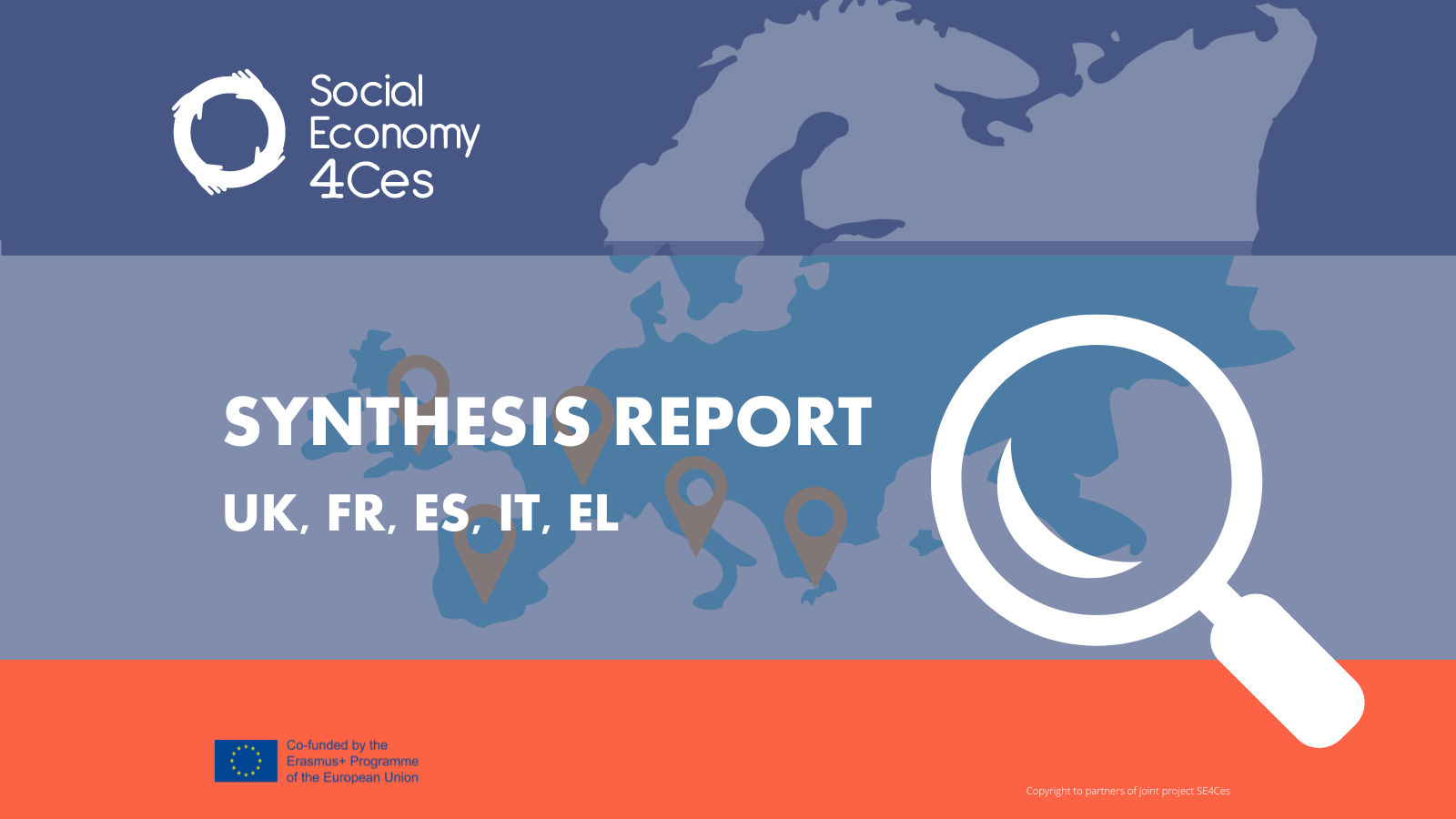The synthesis report provides a comprehensive review of educational provisions on the Social Economy (SE) across 5 countries (UK, France, Spain, Italy and Greece) and sets the foundations for understanding the ways in which an SE programme could be designed to meet the needs of various relevant actors (in particular, educators, students and organisations).
Our findings suggest that most programmes are quite general in terms of their focus on social economy or social entrepreneurship, with SE actors expressing an increasing appetite for more specialised courses which makes the development of new programmes with an explicit focus on social and solidarity economy strongly advisable.
‘Keeping a strong grounding in SE values whilst reaching out to a diversity of audiences’
Collaborations between Higher Education Institutions (HEI) and SE actors take different forms, yet they tend to be at the delivery stage rather than in the development of the programmes or the co-creation of knowledge, hence the role of SE actors in the designing and delivery of these programmes could be strengthened. Existing provisions do offer a range of innovative practices and any new programmes should build on, and expand, these practices. New programmes should provide a good balance between theory and practice, be flexible in their modes of delivery, create opportunities for networking, and have a strong grounding in SE values whilst being open enough to attract a variety of different audiences and adapt to different and changing environments.


